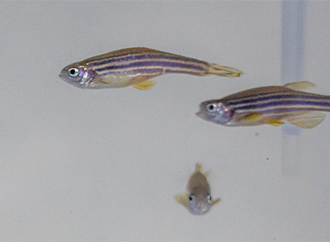
Exploring Natural Solutions for Bone and Muscle Health at the University of Malta
The enhancement of bone and muscle health is a critical area of medical research, especially amidst an aging population where musculoskeletal disorders become increasingly prevalent. The University of Malta is at the forefront of innovative research tackling these challenges by investigating natural products that may support bone and muscle growth. This article delves into the ongoing projects, particularly Project STRONG, highlighting how the university’s efforts could lead to effective, natural therapeutic options for improving musculoskeletal health.
Understanding the Importance of Bone and Muscle Growth
Bone and muscle tissues are vital for mobility, stability, and overall health. Conditions like osteoporosis and sarcopenia diminish these tissues, leading to increased fall risk, fractures, and reduced quality of life. Traditionally, treatments have focused on either pharmacological interventions or lifestyle changes, but there’s an emerging interest in exploring natural products with potential therapeutic effects. The University of Malta’s research aims to fill this gap by screening natural compounds for their ability to promote both bone and muscle regeneration.
Innovative Research at the University of Malta
Among the notable initiatives is Project STRONG, led by Professor Melissa Formosa from the Department of Applied Biomedical Sciences. This project revolves around using zebrafish as a model organism to identify natural and semi-synthetic products that can simultaneously enhance bone and muscle function. Such a dual-target approach is especially promising because it addresses the complex interplay between these tissues in disorders like osteosarcopenia.
Why Use Zebrafish as a Model?
Zebrafish have become popular in biomedical research due to their genetic similarity to humans, transparent embryos, and ease of maintenance. They allow researchers to observe tissue development and drug effects in real-time, making them ideal for high-throughput screening of natural compounds. The University of Malta’s team has developed standardized protocols for drug screening and toxicity testing in zebrafish larvae, published recently in the Journal of Visualised Experiments (JoVE). This platform accelerates the discovery of potential therapeutics to mitigate musculoskeletal disorders.
Scope and Goals of Project STRONG
Funding for this 18-month project comes from Xjenza Malta, under the FUSION R&I Technology Development Programme. The project’s goal is to identify natural compounds capable of simultaneously stimulating bone formation and muscle growth, filling the current treatment void for osteosarcopenia. The team collaborates internationally with researchers from the University of Szeged in Hungary and Bar-Ilan University in Israel, bringing a broad spectrum of expertise to this research.
Potential Benefits of Natural Products for Bone and Muscle Health
Natural products derived from plants, fungi, or marine organisms have historically provided a basis for many effective medications. Their potential to support tissue regeneration is gaining recognition, partly due to their bioactivity and fewer side effects compared to synthetic drugs. The University of Malta’s research focuses on identifying such compounds that can act on pathways involved in bone and muscle development, repair, and maintenance.
Current Challenges and Future Prospects
While promising, translating findings from zebrafish models to human therapies requires extensive validation, including clinical trials. Despite this, the research paves the way for developing nutraceuticals or supplements that could complement existing treatments. Moreover, natural products’ safety profile makes them attractive candidates for long-term use, especially among the elderly or individuals with chronic conditions.
The Role of the University of Malta in Advancing Biomedical Research
The University’s commitment to research excellence is exemplified through projects like STRONG, driven by faculty expertise and international collaborations. This not only contributes to scientific knowledge but also enhances Malta’s reputation as a hub for innovative biomedical research. The university’s focus on integrating natural product research aligns with global trends toward sustainable and biocompatible therapies.
Supporting the Future of Natural Musculoskeletal Therapies
The University of Malta’s pioneering efforts in researching natural products for bone and muscle growth could lead to safer, more effective treatments for degenerative musculoskeletal conditions. As research progresses, collaborations between academia, industry, and healthcare providers will be crucial in translating these scientific discoveries into clinical applications. For those passionate about advancing health sciences, the university provides a fertile ground for innovation and discovery.
Interested in studying at the University of Malta? Fill out the form to get personalized support from a Studygram expert counselor. We’ll guide you through program selection, admission requirements, and the application process, making it easier for you to take the next step toward your academic goals in Malta.

